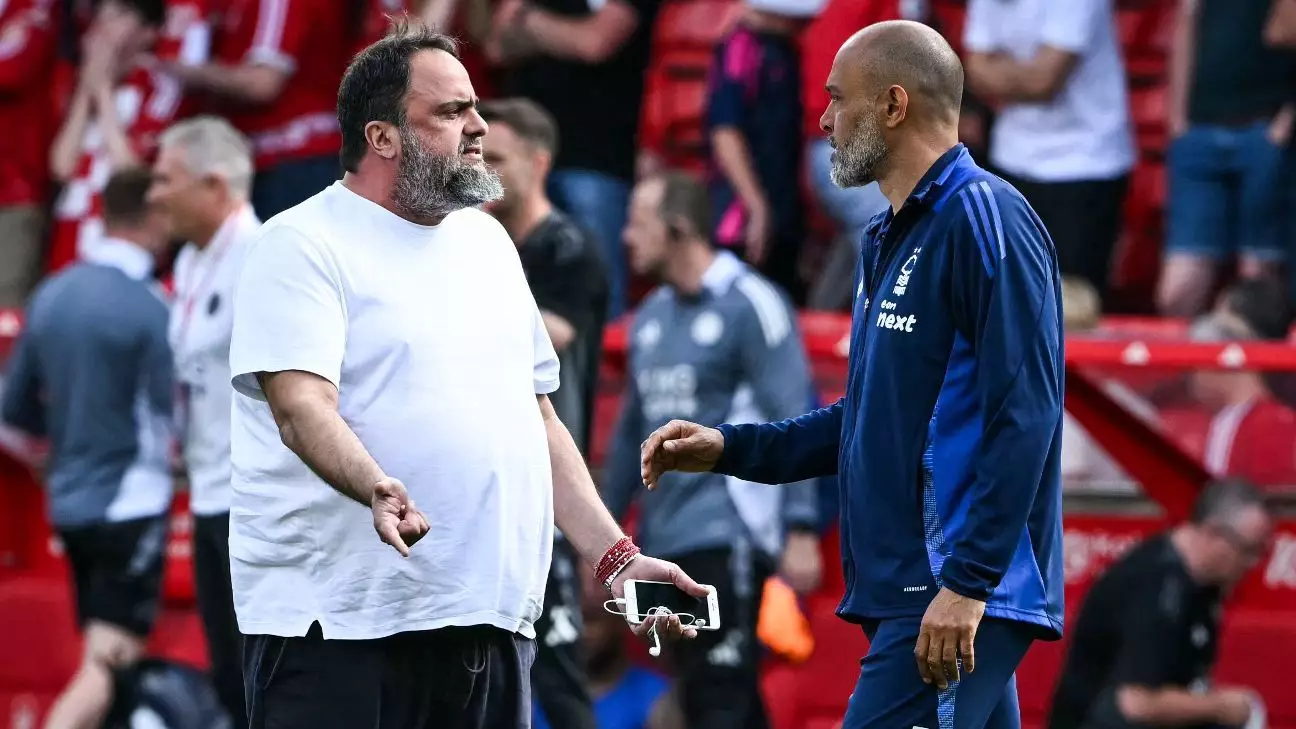In the high-octane world of professional football, emotions often run high, and actions can speak louder than words. Such was the case when Nottingham Forest owner Evangelos Marinakis made headlines for charging onto the pitch during a tense moment against Leicester City. The incident, which unfolded after a dramatic 2-2 draw, highlighted not just the tension that can accompany crucial matches, but also the deep emotional investment of owners in their teams, particularly the welfare of their players.
Marinakis’s impulsive entrance on the field was not just a product of the game’s stress; it was fueled by genuine concern over the health of forward Taiwo Awoniyi, who was visibly distressed after an injury. In an environment where winning often overshadows the human element, Marinakis’s actions serve as a reminder that behind the tactical decisions and commercial pressures, lies a commitment to the athletes themselves. It’s a refreshing narrative in a sport that sometimes appears focused solely on the bottom line.
Values Beyond the Pitch
The club’s subsequent statement about Marinakis revealed layers beyond mere frustration; it described a passionate owner who views the team as an extension of his family. This perspective is crucial—when players see that ownership truly cares, it fosters an environment of unity and collective drive. The acknowledgment that Marinakis did not merely react to Awoniyi’s pain but perceived it as a reflection of the team’s overall ethos speaks volumes about his leadership style.
However, one must critically consider the fine line between passion and impulsivity. While Marinakis’s instinctive response came from a place of compassion, such actions could also set a precedent for owners encroaching on managerial territory. Nuno Espirito Santo, the head coach of Nottingham Forest, downplayed the situation, emphasizing that no confrontation occurred between them. This is crucial because the dynamic between an owner and coach must remain respectful and productive for the club’s long-term success.
The Ripple Effect of Compassionate Ownership
The narrative extends beyond this single match; it illustrates the potential ripple effect of compassionate ownership in football. Marinakis’s emotional display can inspire his players to foster resilience and team spirit. When players feel valued and recognized not only as athletes but also as individuals, their performance on the pitch can reflect that appreciation.
Furthermore, the acknowledgment of Awoniyi’s subsequent surgery underscores the necessity of prioritizing player welfare, especially in high-stakes environments. The health and recovery of athletes should always take precedence over immediate results, indifferent to the pressure of qualification campaigns or fan expectations. Marinakis’s response could act as a catalyst for broader discussions about player safety and the need for a more empathetic approach within the sport.
In essence, Nottingham Forest’s recent incident is a microcosm of a larger dialogue about the values we prioritize in football. Embracing an ownership style that balances passion for the game with genuine concern for the players may not only enrich the club’s culture but reshape how we view leadership in sports narratives.

